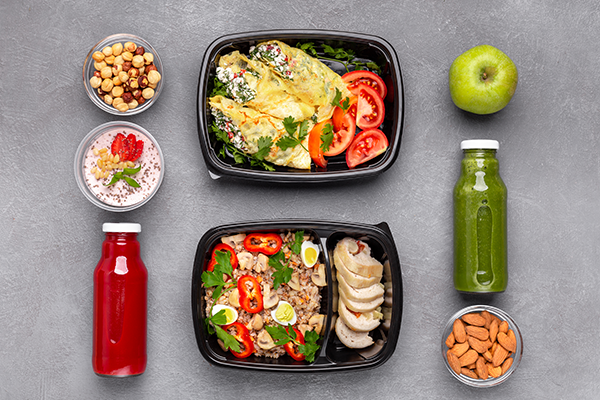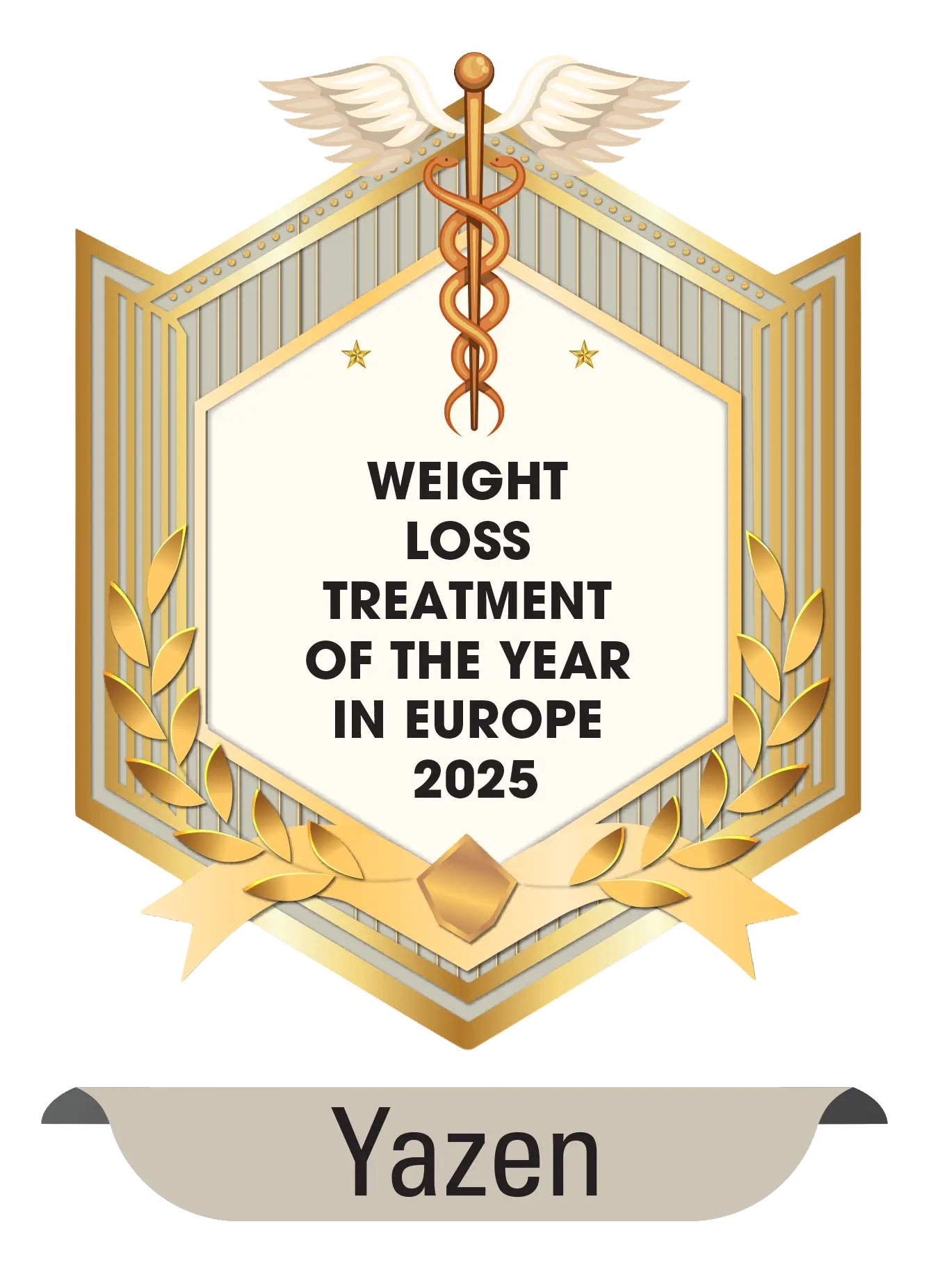The best diet to lose weight quickly – how to do it in a healthy way
When the goal is to lose weight quickly, it’s easy to get caught up in headlines and new trends. However, research consistently points in the same direction: the best diet for losing weight is the one you can maintain over time — one that creates a calorie deficit while still providing enough nutrients, vitamins, and minerals. When your energy intake (kcal) is lower than your energy expenditure, your weight decreases – regardless of what the diet is called (1,2).

What determines whether you lose weight?
To lose weight, you need to be in a calorie deficit – meaning that you consume less energy than your body uses. How quickly you lose weight mainly depends on how large your calorie deficit is. It is primarily your diet – what you eat and drink – that has the greatest impact on weight loss. Exercise is important for your health and how you feel, but generally has less effect on weight loss than diet. However, exercise is important for maintaining muscle mass during weight loss and makes it easier to keep the weight off in the long term.
Diets for losing weight – what the research says
There is a wide range of different diets for losing weight, but they can often be divided into a few main categories:
- Diets focusing on energy distribution: for example, less fat, fewer carbohydrates, or more protein.
- Diets that exclude or limit certain foods: such as the paleo or keto diet.
- Diets focusing on when you eat: such as intermittent fasting, for example 16:8 or 5:2.
Distribution of carbohydrates, protein or fat
There are many opinions about what the best energy distribution is for losing weight – more or less carbohydrates, protein, or fat. A recent large review of the research shows that the differences between different approaches are small, although people who ate slightly fewer carbohydrates lost somewhat more weight on average. The researchers emphasise that all dietary approaches work as long as they lead to a calorie deficit, and that the effects on blood sugar, blood pressure and cholesterol were similar between groups (3).
Similar results have been seen in previous research, including a large two-year study published in the New England Journal of Medicine, where over 800 people were randomly assigned to four different diets with varying amounts of fat, carbohydrates and protein. All groups lost about the same amount of weight – around three to four kilos on average – regardless of nutrient distribution. The researchers concluded that weight loss mainly depends on a calorie deficit rather than exactly how much carbohydrate, fat or protein the diet contains, although a slightly higher protein intake can facilitate weight loss by increasing satiety (4).
Diets that exclude or limit certain foods
Many popular diets involve excluding certain foods – for example, bread and pasta in low-carb diets, or dairy products and legumes in the paleo diet. In the short term, this can help you lose weight, but mainly because you automatically consum
less energy when certain foods are excluded.
A systematic review of the research shows that the paleo diet does not produce better results for blood sugar, insulin or HbA1c than other healthy dietary approaches, such as the Mediterranean diet, diabetes-adapted diets or national nutrition recommendations. Weight loss was similar between groups – showing that it is the calorie deficit that matters most, not which foods are excluded (5).
Fasting for weight loss
Many people who want to lose weight try different types of fasting, such as the 16:8 method, where you eat during an eight-hour window and fast for the rest of the day. This type of diet can help some people eat fewer calories (kcal) and thereby create a calorie deficit.
However, research shows that fasting does not lead to greater weight loss than other ways of reducing energy intake. In a study published in JAMA Internal Medicine, people who followed the 16:8 fasting method lost about the same amount of weight as those who ate three regular meals a day (6). Even more unusual approaches, such as alternate-day fasting, have shown similar results (7). It’s not when you eat that matters most, but how much and what you eat.
Adherence is key to successful weight loss
Research shows that all diets creating a calorie deficit work – as long as you stick to them (1,2). The difference, therefore, isn’t in which diet you choose, but in how well you can maintain it. If a diet feels too restrictive, complicated or socially difficult, the risk increases that you’ll fall back into old habits – which is often when the weight comes back. There is therefore no single diet that is “best” for everyone; it largely depends on individual preferences.
Healthy weight loss isn’t just about calories
Eating fewer calories than you burn is the foundation of weight loss, but the foods you choose play a major role in how easy it is to succeed. Food should not only provide energy – it should also be healthy, satisfying, taste good, and contain enough vitamins and minerals. It’s easier to stick to a diet that makes you feel full and content than one that leaves you hungry and tired. Examples of good foods to eat when losing weight:
- Protein: One of the most important nutrients for healthy weight loss. It helps preserve muscle mass, increases satiety, and keeps you fuller for longer between meals. Good protein sources include fish, chicken, eggs, low-fat dairy products like yoghurt and quark, as well as beans and lentils. Try to include a protein-rich food in every meal – even breakfast and snacks.
- Vegetables, root vegetables, fruit, and berries: These are filling relative to their calorie content, allowing you to eat a larger volume of food for relatively few calories. A simple rule of thumb is to fill half your plate with vegetables and add fruit or berries to breakfast and snacks.
- Fibre-rich foods: Whole grains, legumes, seeds, and nuts contribute to lasting fullness, stable blood sugar, and good gut health. Eating more fibre helps you stay full longer and reduces snacking between meals. Fibre-rich foods also tend to be more nutritious and contain more vitamins and minerals.
- Healthy fats: These are also an important part of a balanced diet, even when you want to lose weight. Choose mainly unsaturated fats from foods like oily fish, avocados, olive oil, seeds, and nuts.
Practical tips for sustainable weight loss
- Fill half your plate with vegetables at lunch and dinner, add protein (fish, chicken, eggs, beans), fibre-rich carbohydrates, and healthy fats (nuts, fish, olive oil).
- Meal planning or preparing meals in advance can make weight loss easier and help you make healthier choices in daily life.
- Eat regularly: breakfast, lunch, and dinner, and possibly a few snacks, such as yoghurt or quark with berries, to maintain energy and reduce snacking.
- Recipes and meal ideas that are filling but lower in calories can inspire and make it easier to maintain a calorie deficit and feel well in the long term.
- Limit sweets, snacks, fast food, and other energy-dense but low-satiety foods.
Summary
There is no single “correct” way or method that works best for everyone when it comes to losing weight. Research shows that most diets work as long as they result in consuming fewer calories than you expend, and that you can maintain them over time. For sustainable weight loss, the quality of your food matters greatly. When you eat less, you need to eat more nutrient-dense foods. Choose healthy options like fish, eggs, chicken, beans, and lentils. Fill half your plate with vegetables, and complement with fibre-rich carbohydrates and healthy fats. This kind of food keeps you full, provides essential vitamins and minerals, and makes it easier to eat in moderation without feeling hungry.
The best diet for losing weight quickly and keeping it off long term is the one you enjoy and feel good on – one that balances energy and nutrition and fits into your everyday life.
References
- Huang, J., Li, Y., Chen, M., Cai, Z., Cai, Z. & Jiang, Z. (2024). Comparing caloric restriction regimens for effective weight management in adults: a systematic review and network meta-analysis. International Journal of Behavioral Nutrition and Physical Activity, 21:108.
- Freire, R. (2020). Scientific evidence of diets for weight loss: Different macronutrient composition, intermittent fasting, and popular diets. Nutrition, 69:110549.
- Lou, Y., Wang, H., Wang, L., Huang, S., Xie, Y., Song, F., Lu, Z., Wang, F., Jiang, Q., & Cao, S. (2025). Comparison with Dietary Groups of Various Macronutrient Ratios on Body Weight and Cardiovascular Risk Factors in Adults: A Systematic Review and Network Meta-Analysis. Nutrients, 17(16), 2683.
- Sacks, F. M., Bray, G. A., Carey, V. J., Smith, S. R., Ryan, D. H., Anton, S. D., McManus, K., Champagne, C. M., Bishop, L. M., Laranjo, N., Leboff, M. S., Rood, J. C., de Jonge, L., Greenway, F. L., Loria, C. M., Obarzanek, E., & Williamson, D. A. (2009). Comparison of weight-loss diets with different compositions of fat, protein, and carbohydrates. The New England journal of medicine, 360(9), 859–873.
- Jamka, M. et al. (2020). The Effect of the Paleolithic Diet vs. Healthy Diets on Glucose and Insulin Homeostasis: A Systematic Review and Meta-Analysis of Randomized Controlled Trials. Journal of Clinical Medicine, 9(2), 296.
- Lowe, D.A. et al. (2020). Effects of Time-Restricted Eating on Weight Loss and Other Metabolic Parameters in Women and Men With Overweight and Obesity: The TREAT Randomized Clinical Trial. JAMA Internal Medicine, 180(11), 1491–1499.
- Trepanowski, J.F. et al. (2017). Effect of Alternate-Day Fasting on Weight Loss, Weight Maintenance, and Cardioprotection Among Metabolically Healthy Obese Adults.JAMA Internal Medicine, 177(7), 930–938.

November 5, 2025
December 4, 2025
Start your weight loss journey with Yazen today
Everything you need to do is to create an account and answer some questions about your health
.svg)
.svg)
More articles
How stress affects weight – why losing weight can be more difficult
Stress and weight loss are often connected. During prolonged stress, the body is affected by hormones such as cortisol and adrenaline, which can influence how the body uses energy, our appetite, and our eating habits. This can cause some people to lose weight, while others find it harder to lose weight – or even gain weight (1).
Body mass index (BMI), body measurements and body composition – why Yazen uses multiple measures
Body mass index (BMI) is a commonly used measure of the relationship between weight and height in weight loss and obesity treatment, but it does not provide the full picture of your health. At Yazen, we therefore complement BMI with body measurements and body composition to gain a better understanding of your body and develop more individualised strategies for sustainable weight loss.




.svg)

















